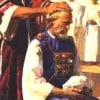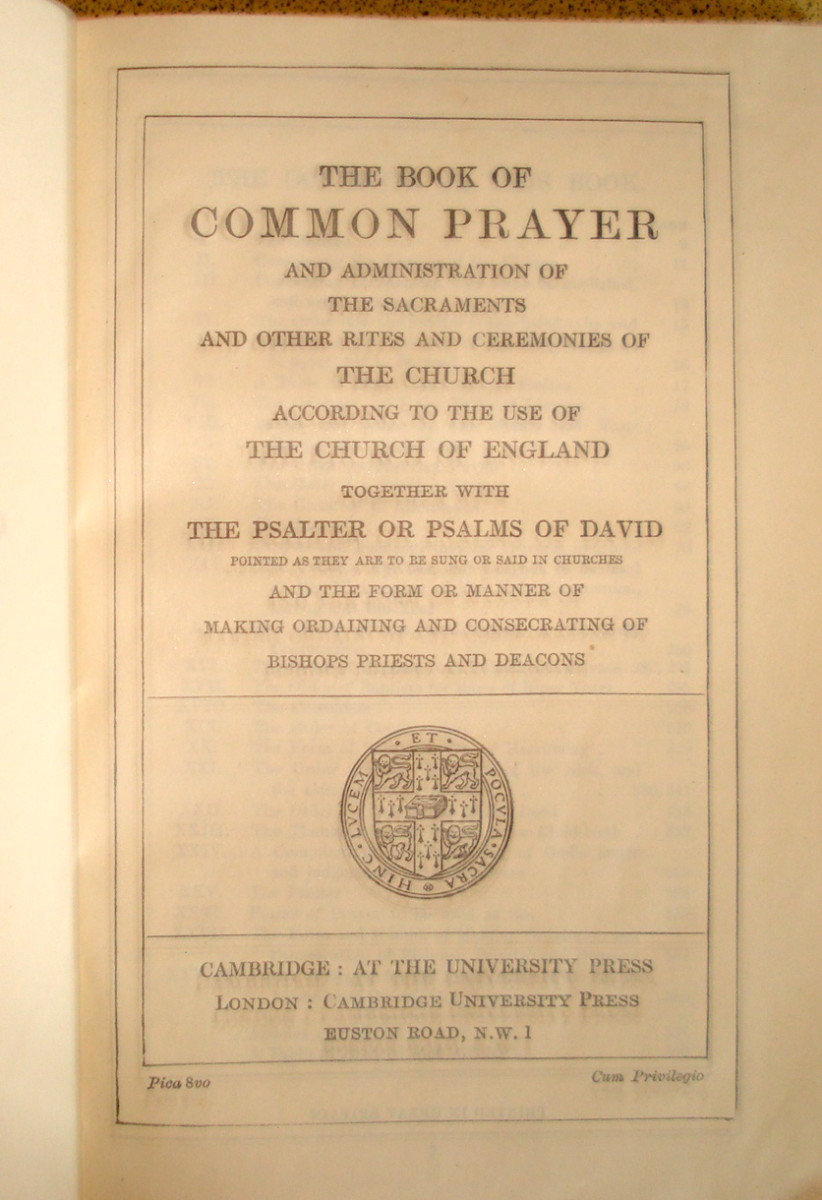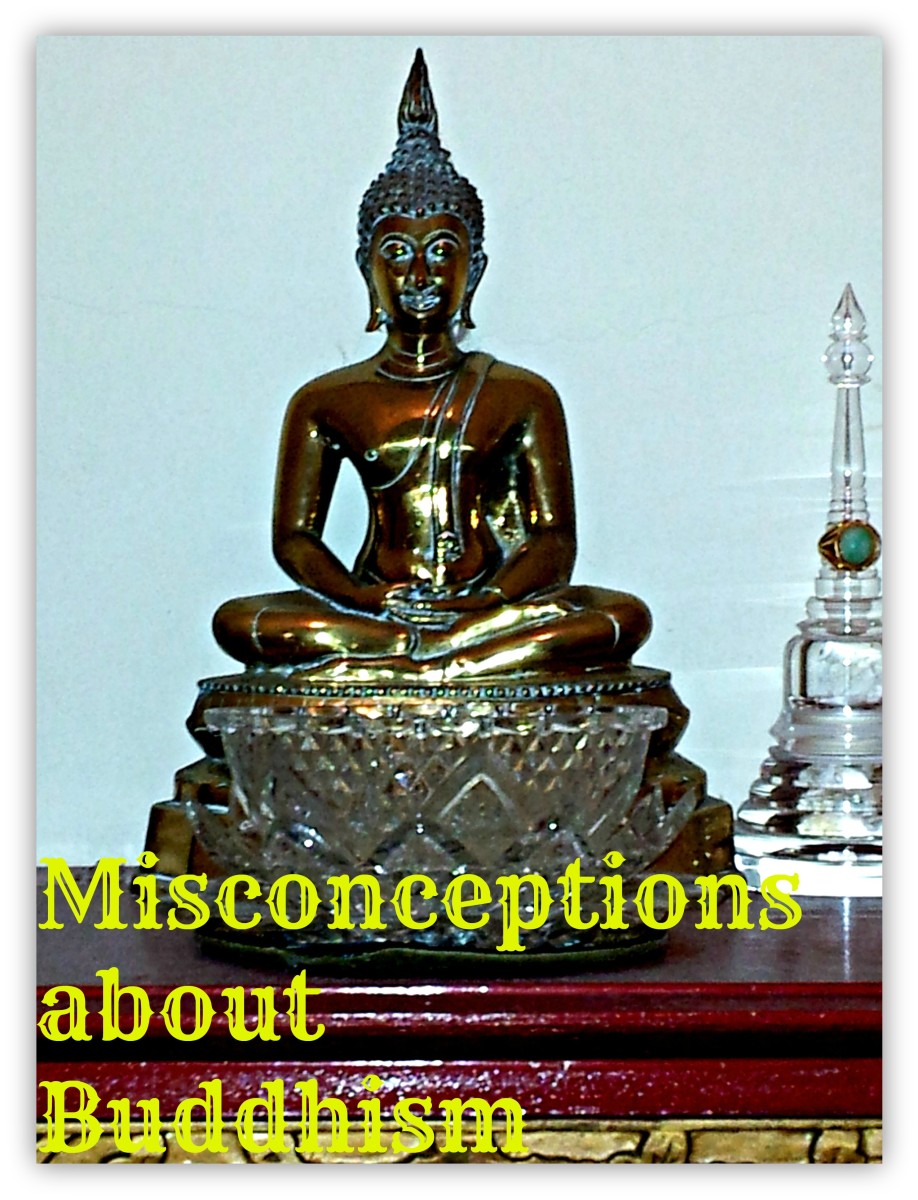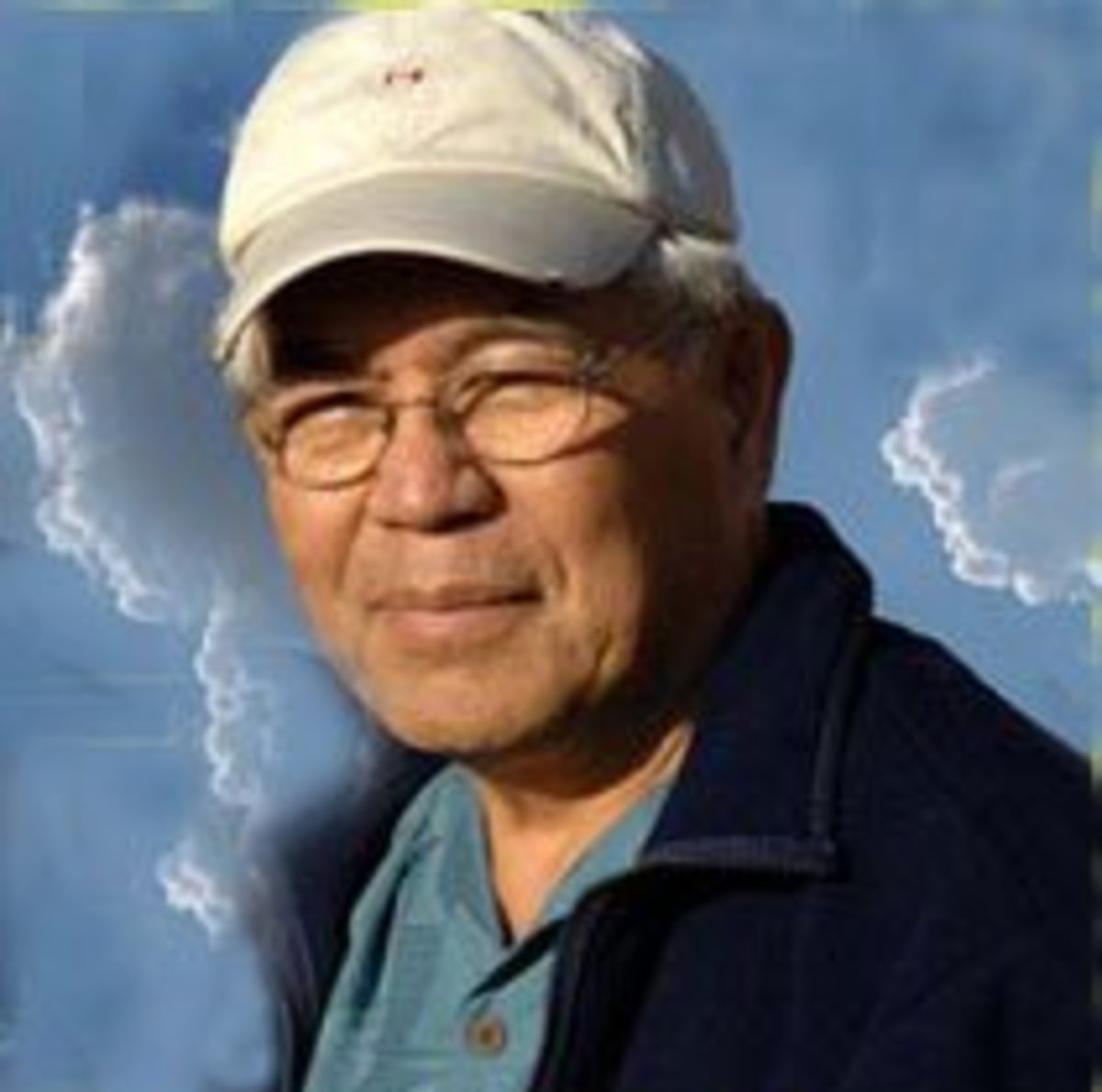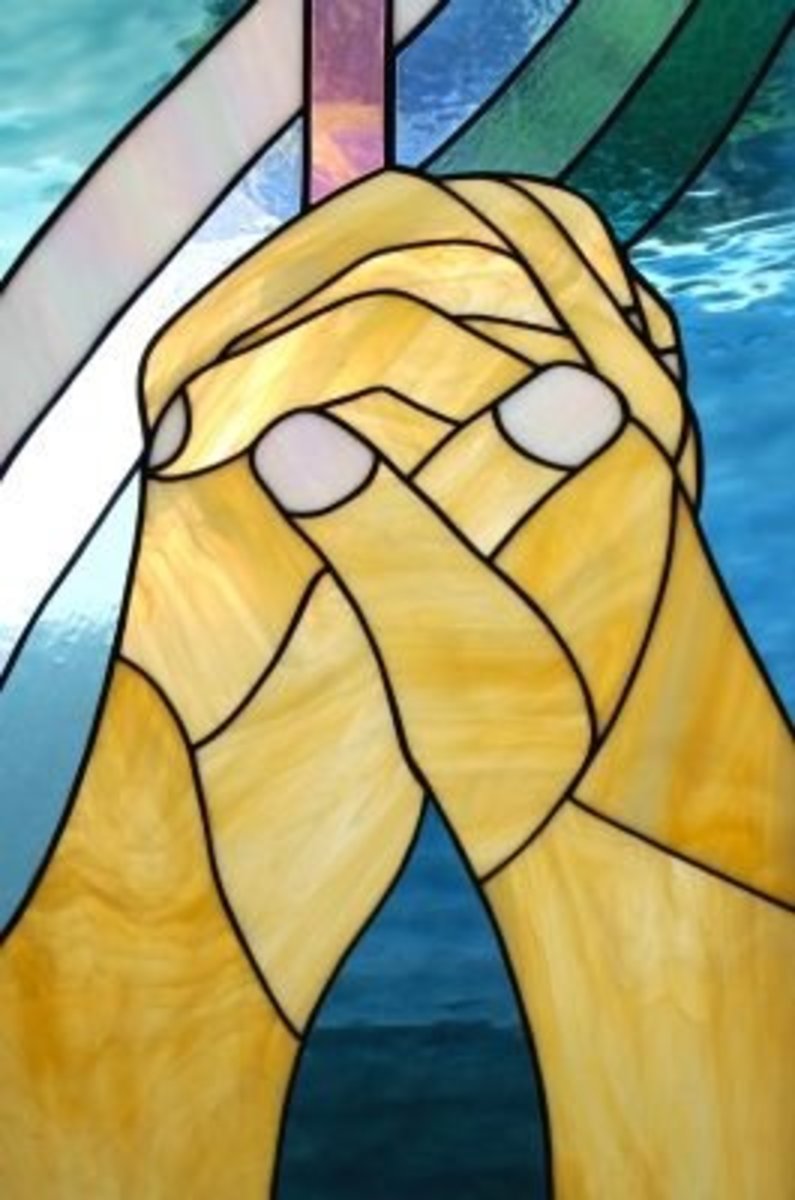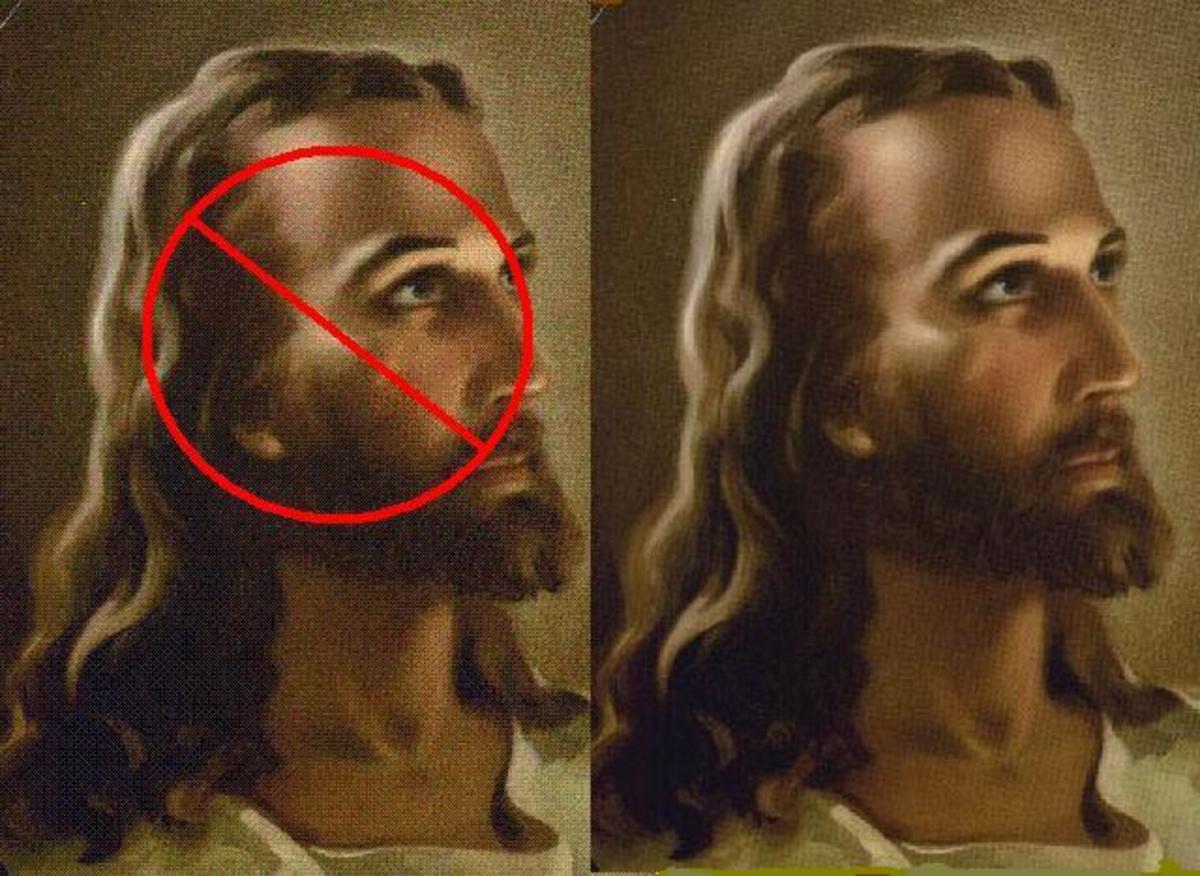In Praise of Zadok: Karaite Perspectives
The written history of Zadok is minimal at best. Much of what we know about him was provided by his adversaries, the Pharisees and therefore is tainted with a high degree of animosity, belligerence and slander. But nonetheless, much can also be deduced from their vitriolic criticism. We can appreciate that in order to generate the degree of hatred amongst the Pharisees and Rabbis to the point that they would actually establish a prayer in which they still curse him profoundly two thousand years after his death can only be a testimony to the greatness of his impact upon our civilization. That he was viewed as a traditionalist that stood in the way of the Rabbis and prevented them from asserting their influence over Judea only reaffirms that although the Pharisees despised him, there were still sufficient numbers of the people that still loved and followed his instructions much to the Rabbis’ regret. After all, had the people as a multitude actually followed the teachings of the Pharisees, as current commentators would have us believe, then why bother to even vilify someone like Zadok since he would have posed no serious threat at all. The reality is that the rabbis tended to exaggerate and we know that around the time the First Roman-Jewish War there were less than 10,000 Pharisees officially belonging to that party; a fraction of one percent of the population. As far as a serious entity of any influence or power, the rabbis were minimal until they seized control following the destruction of the Temple. Prior to that event one could not say they represented the majority of the population at all. Therefore the converse had to be true, the Sadducees, with their practices within the Temple cult, which alleviated the people of the rigorous requirements of worship by performing them on their behalf, may not have been loved by the people but at least they were appreciated for the increased free will that they preserved for the people. And though the Pharisees and Rabbis condemned Zadok for his primary teaching that the greatest gift God has given to mankind happened to be the gift of life itself and therefore we must live it to the fullest since there were no rewards in some afterlife that did not exist, this was a teaching that the common man could relate to. Taught that there were no heavenly rewards meant that the people had to learn not only to enjoy what they had but also that they had to preserve their life style as they were only given the one opportunity to live it properly. Diametrically opposed to the Pharisaic teachings, it earned him the scorn of the rabbis who felt it necessary to deprive themselves of so many pleasures in order to obtain God’s recognition once they were dead and believed the people should do likewise. We know that at the time Anan ben David was establishing the doctrines that would become Karaism, there was still a flourishing Zadokite population that adhered to the priest’s teachings and doctrines already nine hundred years after his death. So perhaps there was a reward after death but not as the rabbis had thought. To still be acknowledged, listened to and revered a millennia after one’s existence can only say one thing, “This was a great man” and he has been rewarded by all those, like myself that call ourselves, Zadokites.
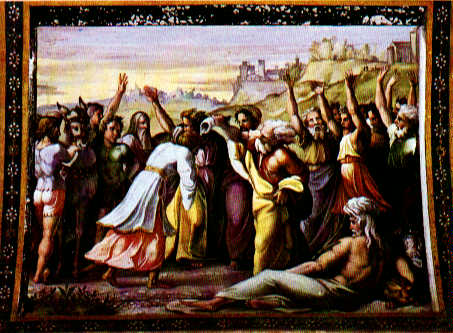
The Rise of Zadok
Firstly, it is necessary to dispel any confusion that arises when one thinks Zadok in the Sadducee sense or tradition. For this Zadok, had nothing to do with the Great Zadok that lived in King David’s time, other than being of priestly descendant. And therefore, we must think of Sadducees as distinct and separate from the theological aspects of the priesthood but more in terms of a political party that only came in to being in the third and second Century BCE, reaching their pinnacle with the teachings of Zadok. The preceding comment you will find is in conflict with many historians that insist the Sadducees adopted their name from the Great Zadok, but I think when examined as a political party, which for all intents and purposes it was, then it suggests that we can immediately tie the Sadducean movement with only the latter Zadok who to put it mildly, was very much the political animal. The best way to view this concept is comparing it to the British Parliamentary system. The Sadducees would be those members belonging to the House of Lords; the aristocracy or those having hereditary power. Whereas the Pharisees were the House of Commons; the common man wishing to have a voice in the halls of government but still relying on the other House to affirm any of its bills that it passes. The significant difference being that the Pharisees, though they claimed to represent the common man, really didn’t as they never had more than a small support of the population as I mentioned previously and the support they did garner tended to be the more radical sectors of society. The reality was that the general populace tended to support the Sadducees as did their ancestors for the past thousand years. Perhaps not in the sense of feeling close to its elitist members but more in the appreciation of what the party provided to them. What worked in the past, still worked, so they saw no need to replace any of the current structures.
The choice of Zadok as the Chief Custodian of the Temple was not by accident. Though the Hasmoneans made claim to the title of being High Priests, they only seemed to function in this capacity when there was a festival, and a large crowd gathered that they could impress. Of course even this limited showing was compromised when the Pharisee Eleazar ben Po’era, as advisor to Johanan Hyrcanus insisted that as a Hasmonean he was not entitled to the position of High Priest and must step down immediately. Of course this did not sit well with Johanan and he dismissed Eleazar, removed the Pharisees from their position of power and restored the Sadducees as the official lawmakers. But who would Johanan turn to in this situation. None other than the son of Johanan’s father’s own arch rival, Alcimus. (See http://hubpages.com/hub/The-Sons-of-Zadok) A very astute and wise decision as the memory of Alcimus (Eliakim) was still very strong and popular amongst the people. Zadok would have seen the appointment as redemption and God’s answer to his prayers to see his family rightfully restored. To the Pharisee seeking to subvert and destroy the power lock that the descendants of Aaron had over the country, it would have been a black day and the rise later of Phiabi, Zadok’s grandson or great grandson depending on who’s genealogy one follows, it even got blacker. Of course, the Talmudic reference to Zadok’s father being Jonathan is incorrect, and when one actually reads the section in the Mishnah, it is evident that the list of handing down the tradition of learning was not intended to be read as confluent. Even Josephus wrote that it was a Sadducee called Jonathan who talked Hyrcanus into moving over to his party (Antiquities of the Jews, book XIII) but since Josephus admits he was a practicing Pharisee there is no reason to doubt that he would toe the party line and think that there was a Jonathan involved even though his explanation is even far more vaguer than those of the Mishnah. It would have been an easy assumption to turn the relation that developed between Johanan (Jonathan) and Zadok into a father and son affair, or simply a Sadducee called Jonathan as Josephus beleived because as far as the rabbis were concerned both men were cut from the same cloth.
Fortunately, Johanan Hyrcanus knew the limitations of his authority and otherwise, the routine operation of the Temple was left to those that were rightfully entitled to fill the position. Though the Pharisees will not come out and say directly that Zadok was inherently deserving of the position of High Priest they do admit that he was of a chief family of priests and from the following record that the Rabbis graciously provided in their Talmud there is an admission of sorts: ‘During a sacrifice a strife broke out between two priests, perhaps brothers, because one had taken precedence of the other at the altar, and one of them was stabbed. There was great excitement among the congregation, whereupon Zadok ascended the steps of the "ulam," from which the priests were accustomed to give the benediction, and there calmed the people by an address based on Deut. xxi. 1 et seq. (Yoma 23a; Tosef., Yoma, i. 12; Yer. Yoma ii. 39d).’ For Zadok to have ascended to the high priest’s platform and having the authority to address the assembled congregation could only indicate that for all intents and purposes, he was the High Priest even if Johanan Hyrcanus claimed that title for himself along with being Prince.
Zadokite Teachings
Zadok’s teachings, although we can assume much of that taught and practiced by the Essenes and the early Damascus community were based on those, we are still reliant on the Pharisees, and other rabbinic sources to identify what some of these actually were. A particular grievance expressed by the Rabbis was that the Sadducees required compensation for injuries done by a person's servant, whereas they required it only in the case of one's animals, according to their interpretation of Exodus 21:32, 35–36. Whereas Zadok’s interpretation only seemed fair, since a person should be responsible for damages done to someone else by their servant whether under direct instruction or not, the Rabbis were willing to overlook such criminal behaviour. And even though logically, sensibly and civilly such a ruling by the Rabbis would be clearly wrong, they were not willing to back down on their stance because it would mean having to agree with Zadok.
Zadok also passed a ruling that false witnesses should be executed only when the accused had already been put to death because of their testimony (Dt. 19:19–21) which he considered the commitment of murder since they deliberately lied to achieve such an end. Once again, unable to acquiesce to the logic and humanitarianism expressed by Zadok, the Pharisees felt compelled to take the opposite stance and imposed the death penalty on false witnesses only when the accused had not been executed. The followers of Zadok were quick to point out to the Rabbis that such an imposition meant that the courts would be committing murder since the false witness was being punished to the extreme for a crime that had actually not occurred. Since the law stipulated an eye for an eye, then murdering the false witness when there was no actual murder to be avenged was excessive and prohibited. But once again the Rabbis refused to back down from their stance.
Zadok was openly critical of the inconsistencies in Pharisaic interpretations of the purity laws, and the Pharisees accused the Sadducean women as all being menstrually impure and therefore untouchables. It was the first time that a Jewish group had labelled a certain sect within its own population as being of a lower caste and therefore unclean. Of course there was far more involved in this matter than just how well the wives of Zadokites maintained their personal hygiene; it was an open declaration that because Zadok and his followers adhered to patrilineal descent, the Pharisees were declaring all Sadducees as non-Jews and the impurity of their mothers would be proof of it. Despite the accusation, Zadok remained calm and explained to the general populace that the purity laws were in reference to the Temple and its priests, and therefore he saw no reason that these laws should be extended and enforced on the daily life of all Israel. Once again his logic provided the general populace with a more liberal existence to carry on their daily lives without the intrusion of religious laws that would prove to be a hardship rather than benefit. But the rabbis adopted the complete opposite approach making it a basic tenet of their Pharisaic laws just so that they could rule all Sadducees as being impure.
Of course, it cannot be overlooked that Zadok ruled there was no Oral Law, no secondary traditions that were intended to be observed not only in addition but often superseding Toraitic laws. Though often linked to Zadok as a contemporary, Boethus and his followers the Boeethusians followed many of the practices laid down by Zadok. Most scholars are of the opinion that the Boethus referenced by this group was the High Priest appointed by Herod the Great in the first century BCE, therefore separated from Zadok by over a century. Quoting one of their basic beliefs from the Jewish Encyclopedia, “The Boethusians held that the first offering of the Omer (Lv. 23:9–14) had to take place on a Sunday, rather than on the second day of Passover. Such a calendar, similar to that known from the Dead Sea sect and the Book of Jubilees, was based on both solar months and solar years. If so, the Sunday in question would be that after the seventh day of Passover (most interpreters have taken it as referring to the intermediate Sunday of the festival). Following this calendar, the holiday of Shavuot (Pentecost) would always fall on a Sunday. While this approach seemed to accord better with the literal interpretation of the words "on the morrow of the Sabbath" (Lv. 23:11), the Pharisees could accept neither this innovative calendar (the biblical calendar was based on lunar months) nor the interpretation on which it was based. To them, "Sabbath" here meant festival. (Attribution of this Boethusian calendric view to the Sadducees by some scholars results from confusion in the manuscripts of rabbinic texts.)” Issues concerning the calendaric calculations of festivals is still a bone of contention between Karaites and Rabbanies, but as the article suggests, it is the Rabbis that fail to adopt the approach which accords better with the literal interpretations. Once again the Pharisees appear to be in a spurious frame of mind simply because the laws promulgated by Zadok make more sense and therefore they must take issue even if their stance is both foolish and merely argumentative.
Probably that which Zadok was most condemned for by the rabbis was that he denied the resurrection of the dead, as well as the existence of spirit beings. Just look at my articles on the kabbalah to see just how important this world of spirit beings is to the rabbis and their lot at http://hubpages.com/hub/The-Great-Deception-Karaite-Perspectives or http://hubpages.com/hub/72-Names-Of-God written by someone else to see how caught up these people have become in this false practice of esoteric magic. No wonder Zadok feared the establishment of such practices and Pharisaic beliefs lest they overwhelm the logical minds of true believers in the Torah. The Zadokites believed not only accepted the teachings of the Greek philosopher Epicurus, that the soul dies with the body but felt it was a necessity so that all things have an end and man does not falsely believe in his own sense of immortality. As such Zadok taught that there were no rewards or punishments after death.
The Pharisees accused Zadok of having a deistic view of God, where the Lord was totally uninterested in human affairs and couldn’t be bothered to intervene. Sadly, they have since convinced their followers, the Rabbanites, that this was a true belief of the Zadokites. Once again, logic tells you how ridiculous this assumption was and how preoccupied the Pharisees were in spreading their lies about the Sadducees that they couldn’t even bother to tell the truth. For Zadok to have preached such a belief would have negated the entire history of the Jews. The Torah is if for no other purpose, a historical documentary of not only how God interacts directly with individuals but in so doing impacts on not only human affairs for an entire population but does so on an individual basis as well. What Zadok did attempt to make people understand was that the individual that felt he could pray to God in order to seek his own personal gain was not only abusing his privilege to approach God but was committing a sin. Somehow, even twenty-one hundred years ago, Zadok knew there would be a time when the Pharisees would preach through their Kabbalah that men could actually use words to command spirits in order to derive personal favours from God. Sadly these same Pharisees of today have no comprehension of how much Zadok, as spokesperson of his time condemned such evil practices. His wisdom has been lost on them forever.
